#Murray Schisgal
Explore tagged Tumblr posts
Text

. - I'm just an untalented old has-been. - Were you ever famous? - No. - Then how can you be a has-been?
Tootsie, Sydney Pollack (1982)
#Sydney Pollack#Larry Gelbart#Murray Schisgal#Dustin Hoffman#Jessica Lange#Teri Garr#Dabney Coleman#Charles Durning#Bill Murray#George Gaynes#Geena Davis#Doris Belack#Ellen Foley#Owen Roizman#Dave Grusin#Fredric Steinkamp#William Steinkamp#1982
5 notes
·
View notes
Text
Alan Arkin, Comic Actor With a Serious Side, Dies at 89
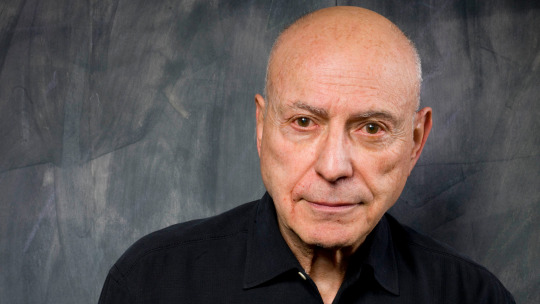
Alan Arkin, a versatile and acclaimed actor who won an Oscar for his supporting role in Little Miss Sunshine, died at age 89. Arkin was known for his comedic and dramatic skills, alongside his ability to play a wide range of characters, from a Russian submarine captain in The Russians Are Coming, the Russians Are Coming, to a con artist in The In-Laws, to a grumpy grandfather in Little Miss Sunshine. He was also a director, writer, musician, and singer who performed with the folk group The Tarriers and composed songs for movies and Broadway shows.
He was born in Brooklyn, New York, on March 26, 1934, to Jewish parents who were immigrants from Ukraine and Germany. He developed his interest in acting at a young age and joined a children's theater group. He studied drama at Los Angeles City College and Bennington College and joined the Second City improv troupe in Chicago. In 1963 he made his Broadway debut in the musical From the Second City, which earned him a Tony Award nomination. He also starred in the original Broadway production of Luv, a comedy by Murray Schisgal.
Arkin made his film debut in 1966 in The Russians Are Coming, the Russians Are Coming, a satire about the Cold War that earned him an Oscar nomination for best actor. He received another nomination for his role as a deaf mute in The Heart Is a Lonely Hunter in 1968. He also appeared in films such as Wait Until Dark, Catch-22, The Seven-Per-Cent Solution, Edward Scissorhands, Glengarry Glen Ross, Grosse Pointe Blank, and Argo. He won his only Oscar for his performance as Edwin Hoover, a heroin-addicted grandfather who coaches his granddaughter for a beauty pageant in Little Miss Sunshine in 2006.
He was married three times and had three sons: Adam, Matthew, and Anthony, all are now actors. He also had four grandchildren and one great-grandchild. He was known for his wit, warmth, generosity, and ardent support for social justice and human rights. He supported causes such as Amnesty International, Greenpeace, and UNICEF. He was also an avid reader, painter, and chess player.
His death was announced by his family on Friday. He died of natural causes at his home in Los Angeles. His family said he was surrounded by love and laughter until the end. They also thanked his fans for their support and admiration over the years.
His legacy will live on through his work and influence on generations of actors and comedians. He was one of the pioneers of improvisational comedy and satire in film and theater. He brought humor and humanity to every role he played, regardless as a hero or a villain. He challenged stereotypes and conventions with his unconventional choices and performances. Arkin inspired many of his peers and successors with his talent, courage, and integrity. He will be greatly missed by his family, friends, and colleagues.
youtube
6 notes
·
View notes
Text

Tootsie (1982). Michael Dorsey, an unsuccessful actor, disguises himself as a woman in order to get a role on a trashy hospital soap.
This is one of the movies that really feels like a product of its time, and needs to be viewed that way. Is it messy with its approach to gender and sexuality? Definitely, but it's also well-intentioned and I think wanted to explore gender, sexuality and companionship in a way that must've felt exciting in '82. Plus the performances are genuinely pretty great, so looking at it as a bit of a time capsule isn't a bad way to spend two hours. 7/10,
#tootsie#1982#Oscars 55#Nom: Picture#Nom: Director#Nom: Actor#Nom: Supporting Actress#Won: Supporting Actress#Nom: Original Screenplay#Nom: Song#Nom: Sound#Nom: Cinematography#Nom: Editing#Sydney Pollack#don mcguire#Murray Schisgal#larry gelbart#dustin hoffman#jessica lange#Teri Garr#bill murray#dabney coleman#backstage#crossdressing#romance#comedy#gender#7/10
14 notes
·
View notes
Photo



Three Elephant paintings with no connection at all to the text. If you don’t like the painting perhaps you will appreciate the quote.
#elephants#elephants with flowers#flower loving elephants#flowers#african elephants#murray schisgal#dreams#falling asleep#conscious#stream of consciousness#reality#a story#story telling
8 notes
·
View notes
Text
Tootsie (1982)

Tootsie has been imitated and ripped off so often that in a way, you’ve seen this story before. You're also going to have to keep in mind the decade this film was set in. Do this, and you'll be in stitches. The film holds up thanks to its ideas and the incredible performances.
Michael Dorsey (Dustin Hoffman) is a talented, but difficult actor whose reputation now makes it impossible for him to find work. Desperate, he disguises himself as "Dorothy Michaels" and auditions for the part of a female hospital administrator on a new soap opera. To his agent’s bewilderment, he gets the part.
This cross-dressing comedic thing has been done so many times since and, unfortunately, this makes some of the plot points in Tootsie familiar. What has endured are the actors, who deliver performances far beyond what you'd expect from this type of comedy. The genius is that Dorothy Michaels is not just Michael Dorsey in a dress; she’s a real character. As a method actor Michael fully embraces the part and Dorothy takes on a life of her own. Her insistence on changing her swooning female role to that of a stubborn feminist is a striking contrast to the real-life Michael, who is a weak man. Dustin Hoffman shows true vulnerability in both parts and they inherently make for many terrific comedic scenarios. As a bonus, he plays both parts so well you believe the outlandish scenario. Edit out some key scenes from the film and you'd never believe that Michael and Dorothy are played by the same person, it's that good.
At first, Dorothy's kind of a sad woman. Created from desperation, unattractive and unsure of herself, how could she not be? As time passes, she grows. She recognizes the unfair workplace treatments women receive and puts her foot down. In a way, the film is about a man who comes in and "rescues" the women around him, but there’s more to it. Dorothy does as much for the man (Michael) as she does for her female co-workers. The people in this film (and in real life) are so used to their environment, to being treated, or treating others in a certain way they don’t give a second thought to it. Michael isn’t consciously hurting the feelings of his friend Sandy (Teri Garr) but he’s so stuck in his role of being a man that he can’t manage to put himself in his female friend’s shoes and actually think about her feelings... until Dorothy comes along. In the same way, the female leads in the soap know they’re not being treated fairly by the sexist director, but they’ve forgotten that an alternative could exist until Dorothy shakes things up. I say the movie is about someone who suddenly gets a new viewpoint and realizes the world isn’t as rosy as they thought it was.
I’m making it sound like Tootsie is a heavy drama with deep messages and it is, partially. Elements of it are touching, but you'll also laugh a lot. This farcical scenario is a goldmine of jokes. If Michael isn’t scrambling to come up elaborate lies to hide his secret, he's desperately trying to get away from a man that’s started to fall in love with Dorothy... not because of her appearance, but because of her feisty attitude and her refusal to get close to him.
I urge you to see Tootsie. Despite some familiar plot points, it's a riot that also manages to be touching. The performances are outstanding and give extra life to the premise. An actor so desperate for work he decides to pretend to be a woman in order to get a role on a soap opera? So we’ve got an actor (Dustin Hoffman) playing an actor (Michael Dorsey) playing an actress (Dorothy Michaels) while everyone else is completely unaware of what is going on. Get past the familiar elements and what you might perceive as a sinister undertone of deception. It ends on the perfect note, that right mix of hilarity and tender sweetness. (On DVD, July 18, 2014)

#Tootsie#Tootsie movie review#Tootsie film review#movies#films#reviews#movie reviews#film reviews#sydney pollack#larry gelbart#murray schisgal#barry levinson#elaine may#dustin hoffman#jessica lange#teri garr#dabney coleman#charles durning#1982 movies#1982 films#comedies#4.5 star movies#4.5 star movie reviews#adamwatchesmovies#2014 movie reviews#2014 film reviews
6 notes
·
View notes
Photo

I ran across an interview with Larry Gelbart, a writer who, along with Gene Reynolds, developed M.A.S.H. for television where it ran for 11 seasons.
And that’s how I know of him.


Outside of my somewhat restricted view of his work, Gelbart was also a playwright (the musical “A Funny Thing Happened On The Way To The Forum”, writing with Burt Shevelove and Stephen Sondheim). He was also a screenwriter (”Tootsie”, writing with Murray Schisgal). And his full resume actually stretches all the way back into the Golden Age of Television.
So.
Suffice it to say there’s plenty of experience here writing. And not only that... but writing to a deadline. With high stakes.
And lots of pressure.
And blank page after blank page to fill.
And always more expectation, never less.
Anyway, the interview I ran across was an interesting, serendipitous discovery. What caught my eye most, though, was this advice near the end.
“When you're writing and come to a rough spot and the ideas just aren't flowing, put down dummy text and keep on moving—especially if it's at the end of the day and you're going to stop. Your brain will never stop for the day, even if you have stopped working, and there's a very good chance you'll come up with something better.”
Keep on moving.
That probably speaks to me most because I actually do that on those occasions when I’m writing music for broadcast television. When there’s a hard deadline and an overwhelming amount of work to do, I take the ideas that I have at the time I need them and put them in play. A lot of the time they work out pretty well... and all I end up doing is tweaking performance or arrangement or mix. Some of the time, though, the music’s just Godawful. Or at least it doesn’t work. Really doesn’t work.
So two things about that:
The first is that having a crappy piece of work with your name on it that might actually make it to air if you don’t do something about it is a pretty effective motivation for doing something about it.
The second thing, though, is this:
I don’t always have the right ideas at the times that I want them. They might come later, of course. But they can also grow out of something I put into a show that isn’t right to begin with.
Think of it as a puzzle piece.
Think of it as a missing puzzle piece.

Now the thing about doing puzzles is that the more of the puzzle you finish, the more it becomes obvious what the missing pieces must look like. And with the music I compose on a deadline, it very much works out that way. The more music I set in place that works, the more obvious it is what the remaining pieces I’m struggling with must sound like.
That’s even happened with music I thought already worked. You see, based on the work I subsequently did, suddenly I realized how an earlier piece really should sound. So I scrapped what worked and created this new piece both from scratch and with great ease.
And it was better. Much, much better.

“Your brain will never stop for the day, even if you have stopped working...”
That’s completely true, by the way. With one condition: that you are already fully engaged with the project on which you’re working. It’s the key, you see, to letting your brain know exactly what it should be working on while you...
Are off the clock.
:-)
#writer's block#writing#imagination#M.A.S.H.#deadlines#pressure#writing hacks#writing advice#larry gelbart#how creative brains work
1 note
·
View note
Text
84 Productions Plans Murray Schisgal Festival in Sheffield
84 Productions Plans Murray Schisgal Festival in Sheffield
This September, 84 Productions is happy to present a Murray Schisgal festival in Sheffield, MA! We will be performing The Typists and The Tiger in repertory. The ensemble will be rehearsing throughout the glorious Berkshire summer and performing Labor Day Weekend in Dewey Hall, 91 Main Street, in downtown Sheffield. Murray Schisgal is an American playwright, producer, and screenwriter born in…
View On WordPress
#84 Productions#Dewey Hall#Lia Russell-Self#Murray Schisgal#Sarah-Winter Thorne#Sheffield MA#Wes Elliot
0 notes
Text
Anna and I are doing our scene from Murray Schisgal’s “Luv” tomorrow for Larry Moss’ Master Class. Here is a recording of the original Broadway version with Eli Wallach, Anne Jackson and Alan Arkin. Our scene begins 4:17 and ends with Milt (me) saying, “Harry Berlin....”
3 notes
·
View notes
Text
104 New To Me Movies: Tootsie(1992)
I watched Tootsie with my family for Easter. They are very nice to indulge me
Stats Title: TootsieRelease Year: 1992Directed By: Sydney PollackWritten By: Larry Gelbart & Murray Schisgal (Uncredited rewrites by Barry Levinson and Elaine May)Recommended By: AFI 100Star Rating: 4 Review What happens when an actor who’s been branded difficult takes on the role of a lifetime? A WOMAN! I had some expectations going into this movie, I expect madcap shenanigans, a lot of…
View On WordPress
#AFI Top 100 Movies#Bill Murray#comedy#Dabney Coleman#Dustin Hoffman#Jessica Lange#Movie Reviews#Movies#Sydney Pollack#Teri Garr#Tootsie
0 notes
Photo

philsp.com
August 1937 issue
Oscar Schisgall, “The Voice of Mr. Omega"
Frank Gruber, “Trailer Town” (Oliver Quade)
Hal Murray Bonnett, “The City of Fear"
Bernard Breslauer, “Bad Medicine"
Terry Gilkison, “Famous Crimes"
K. Krausse, “Diamonds of Death"
William Donald Bray, “Four Bits a Week” (River Joe)
Westmoreland Gray, “The Wrath of the Goffs"
Seattle Mystery Bookshop
#thrilling detective magazine#pulp art#pulp cover#pulp magazine#crime fiction#mystery short stories#hardboiled#oscar schisgall#frank gruber#hal murray bonnett#bernard breslauer#terry gilkison#k.krausse#william donald bray#westmoreland gray
8 notes
·
View notes
Text
The Ten Best Films of 1967
Bosley Crowther, The New York Times, 24 December 1967
THIS was the year in which Hollywood—or the home-grown film, if you please—made a remarkable emergence from the shadow of eclipse into which it had been cast by foreign imports and the weakness of its own energies in the past several years. Suddenly, against a record that showed a consistent decline in numerical representation since 1961, the Hollywood moviemakers have landed on my “10 best" list this year with no less than four solid entries, and with a respectable sprinkling on the honorable mention list.
Unstinting credit for this rebound to critical respectability must be given to those producers and directors who have finally responded to the cry for pregnant themes in the contemporary span of social tensions, rather than drift with a flat escapist tide. But it must also be acknowledged that a certain lessening was evident this year in the quality of foreign-language pictures, punctuated only by the emergence of individual, isolated surprises from young directors scattered from Sweden to Spain.
This was a year marked by ugly explosions of violence and sadism in many films, much of it meritricious and generated merely to shock. There are some elements of violence in films on the forthcoming list. But they are artfully restrained and developed to make valid and socially meaningful points. I am happy to conclude that the entries on this last year-end balance that I’ll draw up are as brilliant in their way and as impressive as those on the first I ever did.
So here they are, put down in the order in which they opened in New York:
La Guerre Est Finie (The War Is Over), screenplay by Jorge Semprun; directed by Alain Resnais; produced by Sofracime of Paris and Eu-ropa-Film of Stockholm; released by Brandon Films. This reflection of two days in the life of an aging Spanish left-wing agitator on a secret trip to Paris to visit his mistress and make contact with the Communist leaders there embraces a complex of emotions, memories, loyalties, and is ono of the finest comprehensions of growing old in today’s world yet filmed. Yves Montand, Ingrid Thulin and Genevieve Bujold play it beautifully.
Ulysses, screenplay by Joseph Strick and Fred Haines, based on the novel by James Joyce; directed by Mr. Strick; a Walter Reade, Jr.-Joseph Strick Production, released by Continental. A faithful and brilliant screen translation of Joyce’s classic novel, done with taste, imagination and cinema artistry. Most notable and commendable are the candor and clarity with which Joyce’s ribald language and erotic images are presented to achieve understanding and the rhythm and ring of poetry. Maurice Roeves as Stephen Dedalus, Milo O’Shea as Leopold Bloom and Barbara Jefford as his wife, Molly, are superior in an excellent cast.
The Hunt, screenplay by Angelino Fons and Carlos Saura; directed by Mr. Saura; an Elias Querejeta Production, released by Trans-Lux. In this brilliantly expanding drama of four men on a seemingly innocent rabbit-hunting trip in a barren area fought over in the Spanish Civil War, Mr. Saura vividly presents us with a bitter and horrifying expose of the spiritual poverty and frustration of middle-aged men who were involved in that war—on the side of the Falangists. One of the rare Spanish films released here, it acquaints us with a strong young directorial talent and new, bold spirit in Spain.
In the Heat of the Night, screenplay by Stirling Silli-phant, based on the novel by John Ball; directed by Norman Jewison; produced by Waller Mirisch of the Mirisch Company for United Artists. The hot surge of racial hate and tension as it has been displayed in many communities this year is fictionally isolated and put forth with realism and point in this strong drama of a Northern Negro detective up against a mystifying murder and an antagonistic white sheriff in the South. Sidney Poitier and Rod Steiger give Oscar-worthy performances.
Father, screenplay by Istvan Szabo; directed by Mr. Szabo and produced by Ma-film Studio III of Budapest, Hungary; released by Continental. Again, an exciting creation from a fresh talent on the European scene is manifest in this study of a young Hungarian's heroic fantasies of his dead father, wherein are reflected his emotional insecurity and his need for a sense of heritage in a changing world. Fine performances by several young people and a fluid, forceful cinematic style distinguish what might be considered a significant achievement of a Hungarian “new wave.”
Elvira Madigan, screenplay by Bo Widerberg; directed by Mr. Widerberg, and produced by Janco/Europa Film; released by Cinema V. A new, young Swedish director swims impressively into our ken with this pictorially exquisite and dramatically absorbing story of a pathetically doomed love affair between a young married Swedish cavalry officer and a beautiful circus girl, all in the serene long ago. Thommy Berggren and Pia Degermark fairly break one’s heart in the principal roles. The creative use of color and of Mozart’s music is memorable.
Closely Watched Trains, screenplay by Bohumil Hrabal and Jiri Menzel, based on a story by Mr. Hrabal; directed by'Mr. Menzel, and produced by Film Studio Bar-randov of Prague, Czechoslovakia; a Sigma III release. In the naturalistic tradition of several recent fine Czechoslovak films, this humorous, revealing and poignant drama of a hopeful, immature young railway-station attendant at a country station in World War II is richly cinematic and full of humanity and tenderness. Vaclav Neckar as the young hero and Jitka Bendova as an older attendant are delightful in a fine cast.
Cool Hand Luke, screenplay by Donn Pearce and Frank R. Pierson, based on a novel by Mr. Pearce; directed by Stuart Rosenberg, and produced by Gordon Carroll for Warner Brothers-Seven Arts. This tough convict-camp melodrama about a cryptic, alienated young chap, caught between the heroization of his fellow prisoners and the ruthless deflating of the guards, is a good, solid chunk of raw meat, cinematically and otherwise, in a year in which films of brutality and violence have too often been overdone. Paul Newman as the hero, George Kennedy as a fellow con and Jo Van Fleet in a small role do especially well.
In Cold Blood, screenplay by Richard Brooks, based on the novel by Truman Capote; directed and produced by Mr. Brooks for Columbia. Here, in this starkly realistic and electrifyingly illuminating film, based on the classic in-depth study of an actual Kansas quadruple murder case, Mr. Brooks brilliantly provides us with a comprehension beyond the scope of this one case of the harrowing hazard of random crime and senseless violence in our communities. Excellent performances by two comparative newcomers, Scott Wilson and Robert Blake, in the roles of the neurotic killers, and a strong, expressive musical-sound score by Quincy Jones are among the several Oscar-worthy efforts in this film.
The Graduate, screenplay by Calder Willingham and Buck Henry, based on a novel by Charles Webb; directed by Mike Nichols, and produced by Lawrence Turman for Embassy Pictures. This sharply incisive and funny picture about the social and amorous problems of a young man fresh out of college is thematically and cinematically one of the best American social satires that has come along in years, and it offers in the title role a new young actor, Dustin Hoffman, who is nothing short of superb. Anne Bancroft as a restless older woman and Katharine Ross as her daughter also shine.
There are my ”10 best” selections. But I would like, as I did last year, to note several films that were contenders for places on this list. They may be classed as Honorable Mentions, with no gradation among them—and here they are:
Persona — Ingmar Bergman’s superb, disturbing study of a clashing dual personality, beautifully played by Bibi Andersson and Liv Uilmann.
Marat/Sade — A brilliant cinematic enactment of the powerful Peter Weiss stage play about insanity and revolution, directed by Peter Brook.
The War Game — A hypothetical study, done in tele-vision-documentary style, of a nuclear bombing of Britain, directed by Peter Watkins.
Up the Down Staircase — The “blackboard jungle” broadened, with particular emphasis upon the devotion of a new high school teacher, played exceedingly well by Sandy Dennis.
Guess Who’s Coming to Dinner — A delightful, icebreaking drawing-room comedy about mixed marriage, charmingly played—and talked—by Spencer Tracy, Katharine Hepburn and Sidney Poitier.
The Battle of Algiers — Here is a scorching example of the old reenacted documentary-type film, directed with new vitality by Gillo Pontecorvo and played by a first-rate cast.
Privilege — What happens when a British ���pop” singer is exploited for the benefit of The Establishment; highly suppositional but strong, also by Peter Watkins.
The Jokers — New British director Michael Winner satirizes the impatience and recklessness of younger members of the upper class.
The Tiger Makes Out — Murray Schisgal’s comedy-satire on New York loners, played delightfully by Eli Wallach and Arne Jackson.
There, that’s enough.
Here’s hoping for even better in 1968!
13 notes
·
View notes
Text
0 notes
Photo
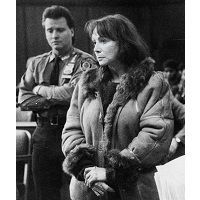
Broadway Producer Adela Holzer Dead At 90-Something – ArtsJournal PEOPLE Posted: January 9, 20207:34 am She had two hits onstage (Murray Schisgal’s All About Town…
0 notes
Text
Luv (1967)
Director Clive Donner’s weird 1967 comedy Luv is the other other one-act playlet in the same double bill as in Murray Schisgal’s two-hander, off-Broadway play The Tiger, filmed as The Tiger Makes Out (also 1967) with stars Eli Wallach and Anne Jackson. Both The Tiger and Luv were played on stage by Wallach and Jackson, but the movie of Luv stars Jack Lemmon, Peter Falk and Elaine May.
Milt…
View On WordPress
0 notes
Text
Cleavon Little
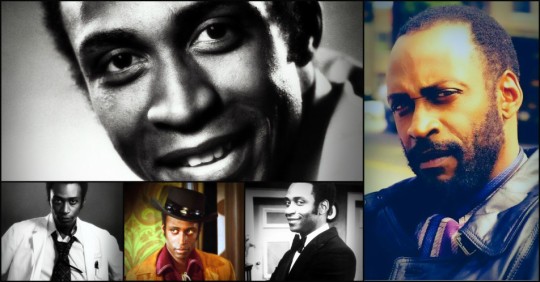
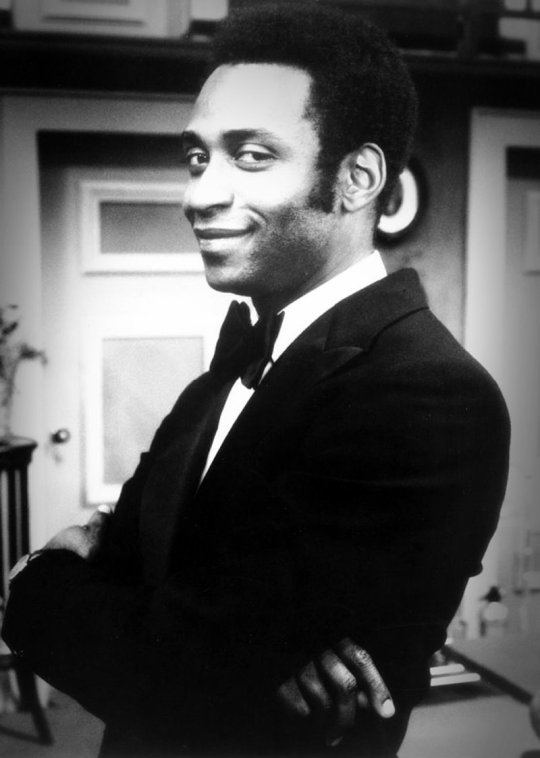
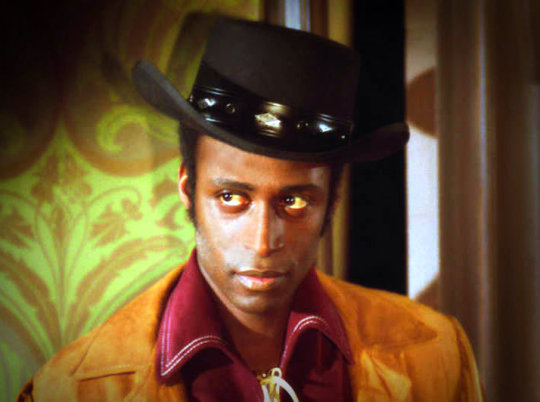
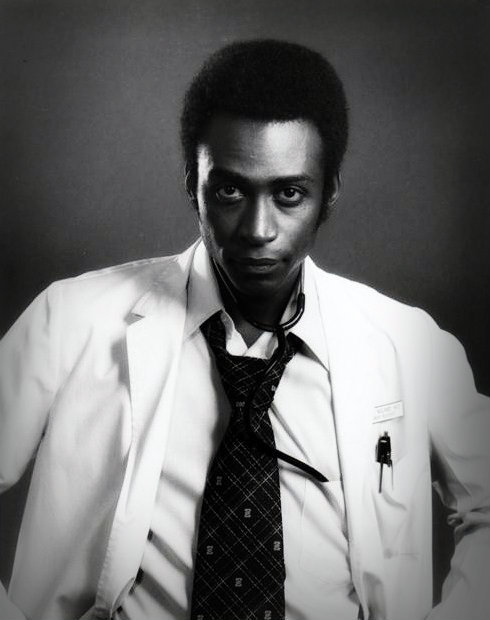
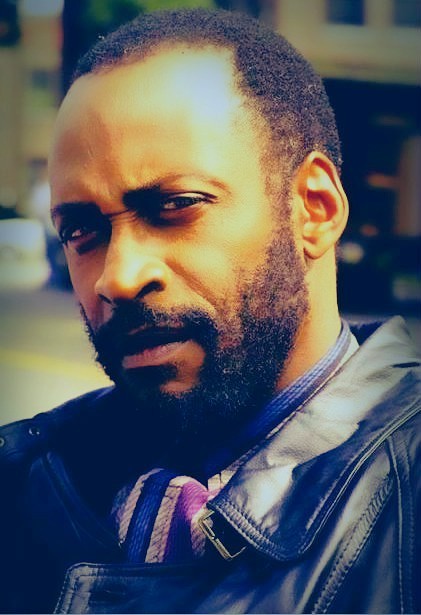
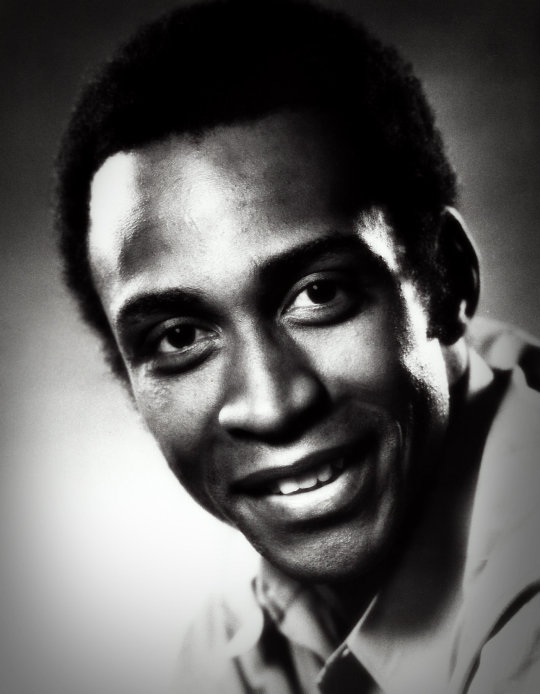
Cleavon Jake Little (June 1, 1939 – October 22, 1992) was an American stage, film, and television actor. He began his career in the late 1960s on the stage. In 1970, he starred in the Broadway production of Purlie, for which he earned both a Drama Desk and a Tony Award. In 1972, he starred as the irreverent Dr. Jerry Noland on the ABC sitcom Temperatures Rising. Two years later, Little starred in the role for which he is best known, as Sheriff Bart in the 1974 Mel Brooks comedy Blazing Saddles.
In the 1980s, Little continued to appear in stage productions, films, and in guest spots on television series. In 1989, he won a Primetime Emmy Award for Outstanding Guest Actor for his appearance on the NBC sitcom Dear John. From 1991 to 1992, he starred on the Fox sitcom True Colors.
Early life
Little was born in Chickasha, Oklahoma. He was the brother of singer DeEtta Little, best known for her performance of "Gonna Fly Now", the main theme to Rocky. He was raised in California, graduating in 1957 from Kearny High School and attended San Diego City College, and then San Diego State University, where he earned a bachelor's degree in dramatic arts. After receiving a full scholarship to graduate school at Juilliard, he moved to New York. After completing studies at Juilliard, Little trained at the American Academy of Dramatic Arts.
Career
Little made his professional debut in February 1967, appearing off-Broadway at the Village Gate as the Muslim Witch in the original production of Barbara Garson's MacBird. This was followed by the role of Foxtrot in the original production of Bruce Jay Friedman's long-running play Scuba Duba which premiered in October 1967.
The following year, he made his first film appearance in a small uncredited role in What's So Bad About Feeling Good? (1968), and his first television appearance as a guest star on two episodes of Felony Squad. A series of small roles followed in films such as John and Mary (1969) and Cotton Comes to Harlem (1970).
Little made his Broadway debut in 1969 as Lee Haines in John Sebastian and Murray Schisgal's musical Jimmy Shine with Dustin Hoffman in the title role. In 1971, he returned to Broadway to portray the title role in Ossie Davis's musical Purlie, for which he won a Tony Award and a Drama Desk Award for best actor in a musical.
A year later, Little was hired as an ensemble player on the syndicated TV variety weekly The David Frost Revue and he portrayed Shogo in Narrow Road to the Deep North on Broadway. In 1971, Little was chosen to portray the blind radio personality Super Soul in the car-chase movie Vanishing Point. The same year, he played Hawthorne Dooley in the pilot for The Waltons called "The Homecoming: A Christmas Story", helping John-Boy Walton search for his father; then again in season four, in an episode called "The Fighter", about a prizefighter who desired to build a church and be a preacher. He also played a burglar in a 1971 episode of All in the Family titled "Edith Writes a Song".
He then starred in the ABC sitcom Temperatures Rising, which aired in three different iterations from 1972–74, with Little's character of Dr. Jerry Noland as the only common element. In 1974, he starred in the television disaster film The Day the Earth Moved, opposite Jackie Cooper and Stella Stevens. He was also cast as Sheriff Bart in the 1974 comedy film Blazing Saddles, after the studio rejected Richard Pryor, who co-wrote the script. Studio executives were apparently concerned about Pryor's reliability, given his reputation for drug use and unpredictable behavior, and thought Little would be a safer choice. This role earned him a BAFTA Award nomination as most promising newcomer.
In 1975, Little returned to Broadway to portray the role of Lewis in the original production of Murray Schisgal's All Over Town under the direction of Dustin Hoffman. The following year, he appeared as Willy Stepp in the original production of Ronald Ribman's The Poison Tree at the Ambassador Theatre. He played a supporting role to Richard Pryor in the racing movie Greased Lightning (1977), based on the true life story of Wendell Scott, the first black stock car racing winner in America.
Later career
In the years after Blazing Saddles, Little appeared in many less successful films, such as FM (1978), Scavenger Hunt (1979), The Salamander (1981), High Risk (1981), Jimmy the Kid (1982), Surf II (1984), and Toy Soldiers (1984). He also made guest appearances on The Mod Squad, The Rookies, Police Story, The Rockford Files, The Love Boat, Fantasy Island, ABC Afterschool Specials, The Fall Guy, MacGyver, The Waltons and ALF.
He co-starred opposite Lauren Hutton and Jim Carrey in the 1985 horror comedy Once Bitten. He returned to the New York stage in 1981 in the Off-Broadway production The Resurrection of Lady Lester, a "poetic mood song" by OyamO, playing the legendary jazz saxophonist Lester Young. In 1985, Little returned to Broadway to appear as Midge in Herb Gardner's Tony Award-winning play I'm Not Rappaport, reuniting with Dear John star Judd Hirsch in New York and later on tour. The Broadway cast also featured Jace Alexander and Mercedes Ruehl.
In 1989 he had a role in Fletch Lives, the sequel to 1985's Fletch. The same year he appeared in the Dear John episode "Stand By Your Man", for which he won the Outstanding Guest Actor Emmy, defeating Robert Picardo, Jack Gilford, Leslie Nielsen, and Sammy Davis, Jr.
Little was slated to star in the TV series Mr. Dugan, where he was to play a black Congressman, but that series was poorly received by real black Congressmen and was canceled before making it to air. In 1991, he replaced Frankie Faison as Ronald Freeman, a black dentist married to a white housewife, on the Fox sitcom True Colors. The same year, he also had a supporting role in the television series Bagdad Cafe, appearing in 12 episodes. Later that year, he was cast as a civil-rights lawyer in the TV docudrama, Separate but Equal, starring Sidney Poitier, who portrayed the first black U. S. Supreme Court Justice, Thurgood Marshall, NAACP lead attorney in the 1954 Supreme Court case desegregating public schools. He also appeared in the TV series MacGyver as Frank Colton, half of a bounty hunter brother duo.
Little's last appearance as an actor was in a guest role on a 1992 episode of the television series Tales from the Crypt entitled "This'll Kill Ya."
Death
Often afflicted by ulcers and general stomach problems throughout his life, Little died of colorectal cancer on October 22, 1992. His body was cremated and the ashes were scattered into the Pacific Ocean.
Legacy
For Little's contribution to motion pictures, he was honored with a star February 1, 1994, on the Hollywood Walk of Fame. The star is located on the south side of Hollywood Blvd., near El Cerrito Place.
Wikipedia
8 notes
·
View notes